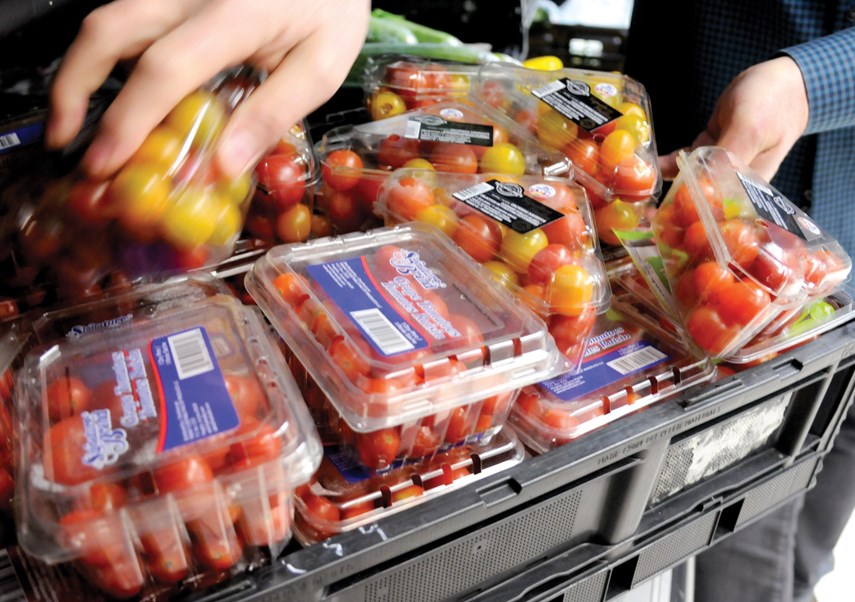I have been privileged to meet some very inspiring people over the course of my food writing sideline, people who are at the forefront of significant, positive social change.
This is perhaps not surprising when you consider how fundamental food is to human well-being. Indeed, for every extravagant meal I report on, a dozen humble, bare necessity meals are needed. But do not fear, this is not to be a guilt trip of a column, I promise.
No, I do begrudge anyone their various sensual rewards and I am certainly among the most culpable when it comes to fostering the idea of a meal as an indulgence.
However, this season always sparks in me the idea that I am exceedingly lucky to have at hand no shortage of excellent food stuffs and their attendant paraphernalia for optimal preparation. These are not an uncommon December ruminations, I know. The tenuously functional coffers of various charitable organizations tend to be at their fullest immediately following Christmas; the trick is keeping them solvent for the rest of the year.
Most recently, I had the pleasure of speaking to Philippe Segur, a man many longtime North Shore diners will recognize as former owner and chef of Le Bistro Chez Michel, especially the now-shuttered, 175-seat Esplanade location. Segur, a thoughtful epicure with a knack for big picture thinking, has, for the last four and half years, held the position of support program co-ordinator for the Harvest Project, a non-profit social enterprise about which I must confess I had only cursory knowledge up until my recent conversation.
The focus of Philippe’s efforts for Harvest Project, aside from overseeing 120 volunteers and six programs, has been food efficiency, a topic that revealed itself as near and dear to him as our intended 20 minute interview passed the one hour mark and I found myself energized and keen to keep discussing ways we as a society could better use the precious resource of food to ensure none among us go hungry. Alas, I eventually reminded myself about how much Segur’s time is worth in very practical terms to members of our community for whom Harvest Project represents a vital lifeline, and wrapped up our invigorating discussion with some ideas that continue to resonate within me.
Above all else, what struck me most about Harvest Project is a notion that pervades every facet of the organization, namely, that dignity and agency are the inherent rights of everyone, irrespective of their socioeconomic status, an austere quantitative metric that today we have inexplicably come to hold sacred as a qualitative one as well. Harvest Project’s mission is to provide a hand up, not a hand out. What this means in real terms is that the organization does not lose sight of the humanity and individual worth of the clients they support. At its heart, Harvest Project helps people who find themselves in a financial rut get back on their feet through an explicit, collaborative work plan. A client of Harvest Project must make the first, essential step of expressing a sincere wish to move forward on a positive path and then commit to a plan of attack to follow that path. From there, the support from the organization is deep and systematic, from life coaching and financial planning to grocery assistance and even art therapy.

Segur explains to me that the acquisition of idle grocery freezer equipment from a shuttered local grocery store some four years ago was a game-changer, permitting Harvest Project to dramatically augment their on-premise grocery store environment in which clients may shop for their meal needs. The setup, which now includes commercial retail freezers and in-ceiling cooling infrastructure, gives clients full agency over their food selections, reinforcing in a tangible way the organization’s core values. Additionally, the freezer equipment has poised Harvest Project to receive donated goods in greater quantities and to more efficiently stockpile grocery items for ongoing client distribution. You see, Segur and the team have negotiated directly with the municipal health authority to permit the receipt of surplus grocery items from retail stores and redistribute them to Harvest Project clients as needed, a seemingly obvious win-win solution to both curb food waste and meet hunger needs, but one that existing legislation nevertheless did not facilitate.
The grocery facility serves the organization’s core clients, who will have worked with life coaching staff to develop their goals, which will include, in many cases, the creation of a sensible grocery list that can be brought to life through the store. However, Harvest Project also offers emergency grocery services to those who, for a variety of reasons, may not be ready or even suited to the core program, which represents a multi-faceted, holistic life plan, but still urgently need food to feed themselves or their families. Harvest Project’s judgement-free, equitable philosophy informs the immediate distribution of pre-packed grocery bags for such immediate needs. As Segur explains, it is nigh impossible to embark on a holistic life goal plan when nagging hunger has engulfed you. Many times, recipients of emergency groceries will, once their immediate needs have been tempered, pursue a core program.
It is imperative to recognize that Harvest Project walks a sometimes precarious line of perception within the community. On the one hand, it sells the organization sorely short to consider it just a food bank, when its programs are so multi-faceted and oriented around interconnected life goals. On the other hand, Segur is adamant that people understand that Harvest Project is there for short-term, urgent need as well and that help will be provided without stigma or judgement. It can be exceedingly hard for people to take the step towards help when they fear either judgement or consequence for being in a position of need.
“It should be like a hospital,” says Segur. “When you go to emergency they are not concerned about the circumstances that led you to that point, but only the immediate injury that needs attention through whatever means are available. Why can’t we adopt this thinking as a culture when it comes to helping people to get a leg up? We should only be concerned that there is a will to move forward, and not focus on the baggage of what led up to this point.”
I took more than 2,000 words of notes during my interview with Segur and yet I feel like I have scarcely done justice to even the most essential facets of what Harvest Project does in this column. However, one particularly important insight from Segur that I believe should give us all pause is that real change related to hunger – that is, systemic, foundational change – needs to involve a wholesale reimagining of the entire food chain and a willingness to personally reconsider our stance on tolerating food waste and inequity.
When I consider the widely reported survey from earlier this year by financial insolvency firm MNP Ltd. that suggested the average Canadian is so over-extended as to be no more than $200 away from month-end financial disaster, the urgency of Harvest Project’s work becomes all the more immediate and apparent.



